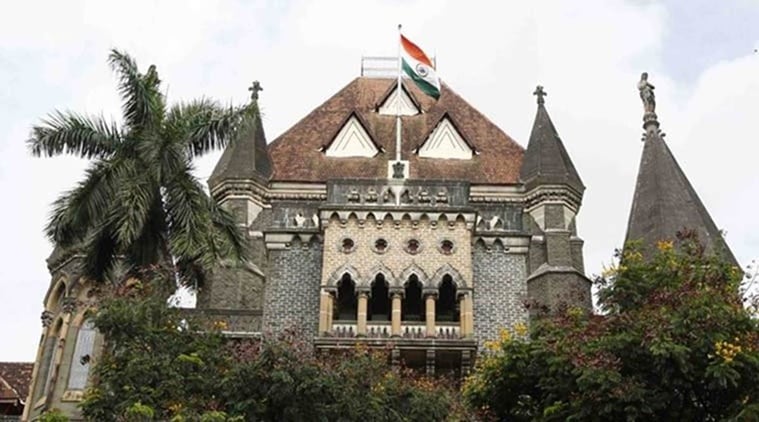 While a division bench led by Chief Justice Dipankar Datta could not hear the plea on Friday due to paucity of time, the High Court is likely to hear it on June 16. (File)
While a division bench led by Chief Justice Dipankar Datta could not hear the plea on Friday due to paucity of time, the High Court is likely to hear it on June 16. (File)
AT THE entrance to a society of upmarket row houses in Andheri (West) hangs a notice that makes it clear whose lives matter more to it.
Issued by the society’s managing committee, the notice advises members against receiving home-delivered food in person, and to send their driver instead.
Then, there are some societies that have restricted the entry of maids, nurses, drivers and guests. These “arbitrary and unreasonable” restrictions have prompted a Mumbai resident, advocate Yusuf Iqbal Yusuf, to move a PIL before the Bombay High Court seeking uniform guidelines for housing societies for the period of the Covid-19 lockdown.
The PIL states that managing committees, which govern housing societies, have no experience in healthcare and have framed guidelines on the basis of improper and incomplete information. Yusuf’s PIL also claims that some societies have gone to the extent of insisting that visitors prove that they have tested negative for the novel coronavirus.
The plea states that such conditions violated the revised testing guidelines of Indian Council of Medical Research (ICMR) and that it is not feasible for asymptomatic and unaffected persons to obtain such certificates. “The lack of uniform guidelines has given autonomy to housing societies to draft rules as per their whims and fancies… If this persists without proper guidelines, it will lead to chaos, and societies will rely on their own guidelines,” the plea states.
The petition referred to the Maharashtra Cooperative Societies Act, 1960, which empowered the state authorities to give directions in public interest to prevent affairs of housing societies being conducted in a manner detrimental to the interests of individual members. Complaints made by aggrieved members to the registrar of cooperative societies are not being redressed due to a backlog of cases that have accumulated in the lockdown, the petitioner said.
While a division bench led by Chief Justice Dipankar Datta could not hear the plea on Friday due to paucity of time, the High Court is likely to hear it on June 16.
The state government’s ‘Mission Begin Again’ guidelines allow self-employed individuals such as plumbers, electricians, pest control technicians to work between 5 am and 7 pm, provided they wear protective gear, use sanitiser and follow distancing norms. But no one, who lives in a containment zone, can enter a housing society.
The state government’s Mission Begin Again does not specifically mention of domestic help. But BMC officials have given clarification on the ground that they may allowed, and even in buildings where people have tested positive, except on sealed areas. But the final decision is up to housing societies.
The lack of clarity has led to heated arguments and fights at several housing societies, and also concerns that they have assumed too many powers. The upscale Tarapore Towers in Oshiwara — where a society member allegedly assaulted the secretary over the ban on entry of maids, drivers, car cleaners and dog walkers in March — continues to ban entry to these professionals.
At Windermere Housing Society in Lokhandwala, the managing committee has banned the entry of part-time domestic help and has insisted that full-time domestic help, who wish to return to live with their employers, do so only after producing a fitness certificate from a doctor and observing 14-day quarantine.
Prakash Ruia, the society’s chairman, said “tough” measures such as these had ensured that not a single one of the building’s 260 members had tested positive so far.
However, Rajeev Saxena, chairman, taskforce, Maharashtra Societies Welfare Association, said such actions discriminated against women working as domestic help. “You cannot stigmatise domestic help just because they live in slums. What about milk and newspaper vendors and electricians who may also live in slums but are allowed to enter societies?” he asked.
A housing society in Bandra (West) recently overruled a group of residents who demanded that domestic help be allowed to resume work, citing a danger to larger public health, after a lengthy showdown between opposing groups. Such instances have also been reported from societies in Mazgaon, Vile Parle, Andheri (East), Jogeshwari and Goregaon.
While many societies have not issued discriminatory orders, society office-bearers said with the authorities holding them responsible for any violations, many had been forced to take a “tough stand” to ensure compliance.
Some societies want electricians, AC mechanics and plumbers to wear PPE, which the apartment that needs the service must provide. In one apartment complex, the mechanic refused to wear PPE, saying he could not work in it, leading to heated exchanges, tears and much acrimony on the residents’ WhatsApp group.
“The partial easing of lockdown has created the fear of an imminent spike in cases and we have had to regulate some movement within our premises. The onus of ensuring that rules related to lockdown are implemented has been put on office-bearers of housing societies by civic bodies. While it gives us no joy to regulate personal freedom, we are forced to do so for the larger good,” said Pravin Mishra, secretary of Bhoomi Height, a housing society at Kharghar.